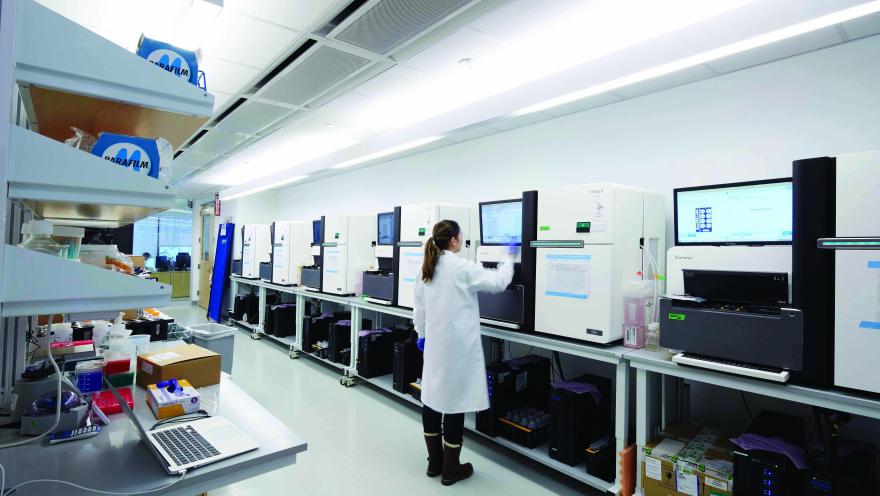The Center for Genomics of Neurodegenerative Disease (CGND) at the New York Genome Center (NYGC) is a prominent player in ALS genetics, leading the way in ALS gene discovery. We are proud to report on its many successes in ALS genetics that were made possible by our major funding efforts. With donations raised by the ALS Ice Bucket Challenge, The ALS Association made a $2.5 million commitment to NYGC CGND in partnership with the Greater New York Chapter, which was matched by a gift from the Tow Foundation. They are proud to collaborate with many of the large, global strategic initiatives that we also support, including Project MinE and Genomic Translation for ALS Care (GTAC) Consortium, and partner with, including Answer ALS and Target ALS. In part I of the NYGC progress update, today’s guest blogger, Dr. Hemali Phatnani, Director of the CGND, reports on the many great achievements out of the NYGC CGND accomplished through their collaborative research approach.
From Dr. Phatnani:
Since its inception just over three years ago, the Center for Genomics of Neurodegenerative Disease (CGND) at the New York Genome Center (NYGC) has quickly established itself as an organizing hub of ALS data collection and analysis, thanks to fostering an ever-growing array of critical collaborative partnerships within the ALS research community. The result is ALS data sharing on an unparalleled and unprecedented scale, empowering an integrated worldwide approach to working toward new treatments and effective therapies for ALS.
The CGND’s ALS Consortium, a global collaboration between clinicians, scientists, geneticists, and computational biologists establishes a framework to apply state-of-the-art clinical and functional genomics together with bioinformatics to the study of ALS disease mechanisms. The Consortium has rapidly grown to now formally include 25-member institutions, and the CGND is in discussions with many other institutions expressing interest in joining this important data-sharing initiative. The goal of the CGND's ALS Consortium is to sequence and analyze the genomes of several thousand clinically well-annotated ALS samples. Data from nearly 2,500 of these samples are already available to researchers from around the globe. Genomic data from these samples will be also shared with the Project MinE collaboration for joint analysis, greatly increasing the power of both efforts. Further adding to the collection will be data from Answer ALS from 1,000 ALS patients, and the NYGC providing its whole genome sequencing expertise to this effort, with 350 samples sequenced to date.
The ALS initiatives of the CGND are an important part of the NYGC’s ongoing research activities and integral to its mission to be at the forefront of transforming biomedical research and clinical care. This past year, the NYGC Bioinformatics team launched MetroNome, a new clinical genomics database, with an inaugural collection of an open-access, high-quality whole genome sequenced dataset of post-mortem tissue samples from Target ALS, another key collaborative partner in these data-sharing efforts. The CGND, The ALS Association, and Target ALS have formed a partnership to create a valuable resource of RNA sequence data generated from tissue samples and induced pluripotent stem cells. This resource will help advance a project examining how Human Endogenous Retrovirus (HERV) RNA sequences may play an important role in a proportion of ALS cases. The CGND is also partnering with Target ALS to collect biofluid samples from ALS patients that will help researchers monitor disease progression. All this growing wealth of ALS-focused information will be stored in MetroNome, which accepts genomic sequencing and clinical data from any research project and allows participating researchers to explore their data in an interactive, visual interface, and organize data along many dimensions.
For more information about the New York Genome Center click here.


Join the conversation. Please comment below.